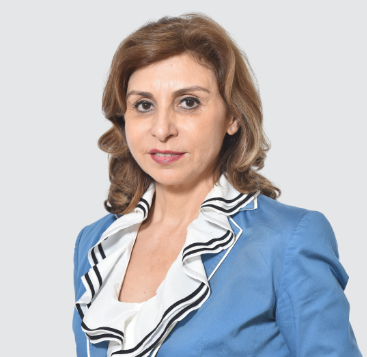What is important for Romanian managers to know about ESG
Increasingly accelerated environmental, social impact and governance (ESG) topics continue to bring challenges and opportunities for companies. ESG is no longer just a buzzword; it has become imperative for business globally, but also in Romania. Whether a company is already making substantial ESG efforts or is just getting started, there are important issues that deserve attention and require action.
There are four key areas to monitor closely: ethics and integrity, supply chain security and transparency, workforce transition, and the dynamic political landscape that brings regulatory changes.
An increasing focus on ethics and integrity
Ethics and integrity will always be at the center of attention in the field of ESG. Stakeholders, including investors, consumers and employees, place increasing importance on the ethical practices of companies.
Thus organizations will need to ensure that their practices are consistent with ethical standards, demonstrating authenticity and transparency in their commitments regarding the sustainability of their operations. Ethical considerations will include fair treatment of employees, responsible marketing, anti-corruption measures and promoting a culture of transparency and honesty.
For businesses in Romania, this means a thorough review of internal policies and practices to ensure they are consistent with ethical guidelines. Transparency in financial reporting, fair treatment of employees and responsible procurement of raw materials are among the areas that will be carefully monitored.
Prioritizing supply chain security and transparency
The importance of the resilience and security of supply chains has never been greater than in the current global context. Discontinuities in the supply chain can have serious consequences for an organization’s reputation, financial stability and overall sustainability efforts. Businesses are prioritizing supply chain security and resilience to reduce risk and improve sustainability.
For companies in Romania, this means careful analysis of supply chains to identify vulnerabilities, diversification of suppliers and integration of sustainability criteria in the selection of suppliers. Increasing transparency by communicating supply chain practices and measures taken to ensure security will be crucial to building trust and credibility.
Transitioning the workforce to more sustainable practices
More sustainable workforce practices means a significant focus on transitioning the workforce to more sustainable practices. This includes upskilling and reskilling employees to align with the organization’s sustainability goals. Companies aim to train their employees to promote the sustainable practices, innovation and technology needed to support ESG initiatives.
In Romania, companies will need to invest in training and development programs to equip employees with the skills needed to build a sustainable future. This may involve working with training companies or specialist training providers to ensure a smooth transition to a more responsible workforce.
The dynamic political landscape with regulatory changes
The political landscape, both globally and in Romania, is rapidly evolving in terms of ESG. Governments and regulatory institutions implement and update policies to address environmental and social challenges. Companies will need to closely monitor these regulatory changes and adapt their strategies and operations accordingly.
In Romania, companies should actively engage in industry-level professional representation bodies, stay informed about policy news and participate in relevant discussions if they want to influence policy directions that align with ESG practices.
In conclusion
ESG is no longer a choice, but a necessity for companies aiming for long-term success and positive social impact. Companies in Romania should proactively adopt these key areas to stay ahead in the ESG landscape.
By aligning with ethical principles, securing supply chains, empowering the workforce and staying informed about evolving regulations, companies can effectively move forward and contribute to a sustainable future.

Florentina Șușnea este Managing Partner în cadrul companiei PKF Finconta. Experiența ei profesională de peste 26 de ani cuprinde domeniile de audit statutar și IFRS, consultanță fiscală, probleme de rezidență fiscală, restructurare financiară și fiscală, documentație și politici de Transfer Pricing, fuziuni și divizări, M&A, expertize judiciare, contabile și fiscale, due diligence de achiziții. Florentina este membru acreditat al următoarelor organizații profesionale: Camera Consultantilor Fiscali, Camera Auditorilor Financiari din România, Camera Expertilor și Contabililor Autorizați din România si Association of Certified Anti-Money Laundering Specialists. A absolvit Facultatea Finanțe-Contabilitate din cadrul Academiei de Studii Economice, București, Facultatea de Drept din cadrul Universității ”Titu Maiorescu”, programul MBA de la Tiffin University din SUA, este doctor în economie și a urmat numeroase cursuri naționale și internaționale în domeniul fiscal. florentina.susnea@pkffinconta.ro













